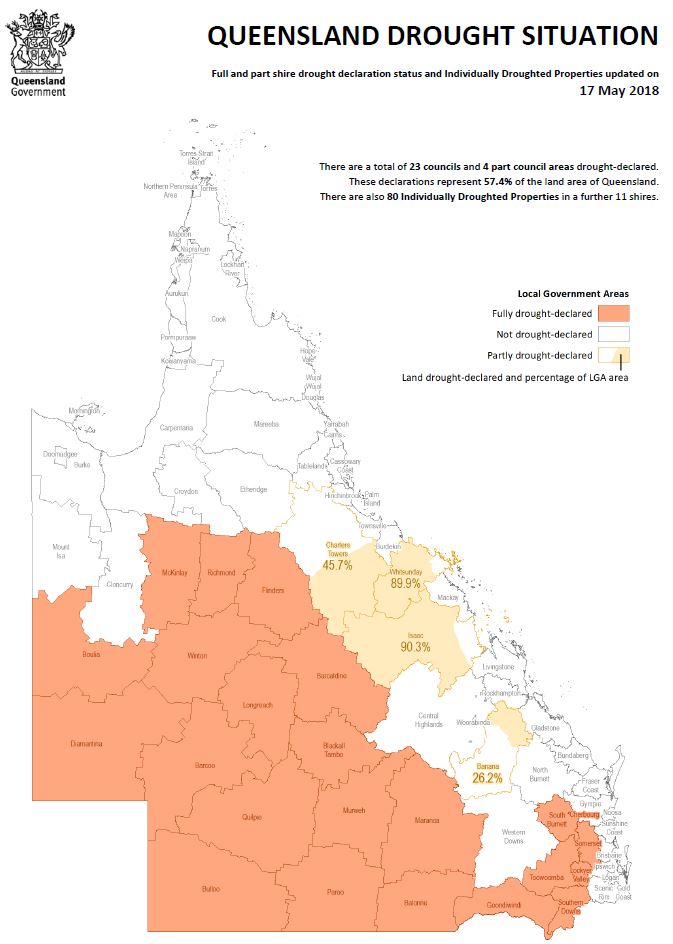The Queensland Government has revoked drought declarations covering all or part of 11 local government areas including sugarcane growing regions, meaning the end of an electricity concession for irrigators.
Minister for Agricultural Industry Development and Fisheries Mark Furner said the change on 17 May 2018 was the result of recommendations from local drought committees.
“At the peak of the drought in March last year, 88% of Queensland was drought-declared,” Mr Furner said.
“I’m pleased to announce that falls earlier this year have helped drop the drought-declared areas down from more than 66% to 57%.”

For sugarcane growers, the removal of drought status means that relief from the fixed charges on Ergon electricity accounts will cease.
Ergon will return each customer to their previous tariff unless the customer directs Ergon to do otherwise.
So the drought revocation is an opportunity for growers to review their electricity requirements and match their needs with the available tariffs.
Ergon will write to all customers affected by the drought decision and advise them of the changes and the likely timing, expected to be following the next meter reading.
Many irrigators switched electricity tariffs to T66 to take advantage of the low variable charge for pumping during the drought.
With the high fixed cost component of this tariff waived during the drought, this was a useful strategy. For those who elect to stay with T66, fixed charges will apply.
The principal irrigation tariffs available are listed below. Other small business tariffs are also available but some cannot be used in conjunction with irrigation tariffs. For more information see the Ergon website.
Tariff 62 - a transitional farming business time-of-use declining block primary tariff. This tariff does not apply in conjunction with Tariff 20, 21, 22, 22A or 24. It is scheduled to be phased-out on 1 July 2020.
Peak – 7:00am to 9:00pm weekdays First 10,000 kWh/month charged at 46.516 c/kWh with all remaining usage 39.336 c/kWh
Off-peak – All other times 16.448 c/kWh
Daily supply charge: 78.451 c
Tariff 65 - is a transitional irrigation business time-of-use primary tariff. The daily pricing period is a fixed 12-hour period as agreed between the retailer and the customer from the range 7.00am to 7.00pm; 7.30am to 7.30pm; or 8.00am to 8.00pm Monday to Sunday inclusive. No alteration to the agreed daily pricing period is permitted until a period of twelve months has elapsed from the previous selection. It is scheduled to be phased-out on 1 July 2020.
Peak - Daily pricing period 36.894 c/kWh
Off-peak - All other times 20.321 c/kWh
Daily supply charge: 78.003 c
Tariff 66 - is a transitional irrigation business fixed annual dual rate demand primary tariff. The annual fixed charge is determined by the connected motor capacity used for irrigation pumping. Any customer taking supply under this tariff who requests a temporary disconnection will not be reconnected unless an amount equivalent to the fixed charge that would have otherwise applied corresponding to the period of disconnection, has been paid. It is scheduled to be phased-out on 1 July 2020.
Annual fixed charge, calculated - first 7.5 kW at $37.503 per kW and remaining kW $112.759 at per kW
Usage: 19.338 c/kWh
Daily supply charge: 171.915 c

.jpg)